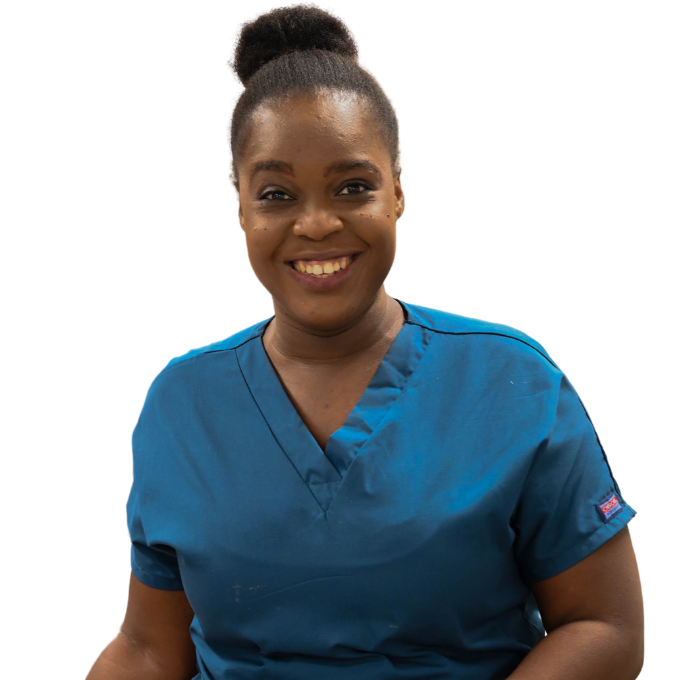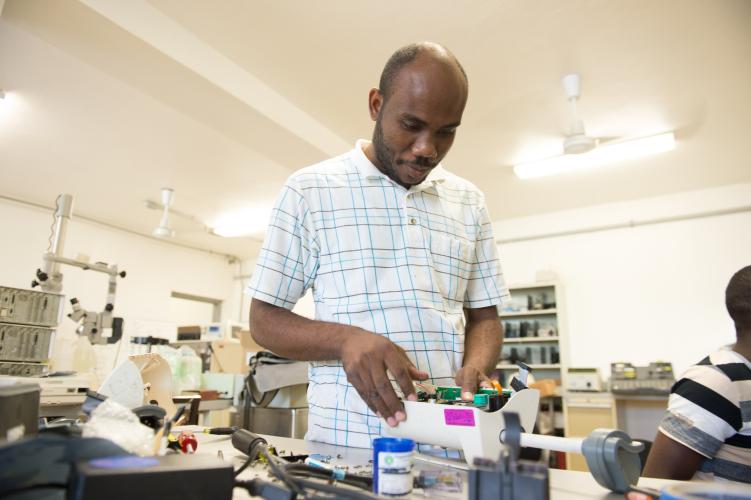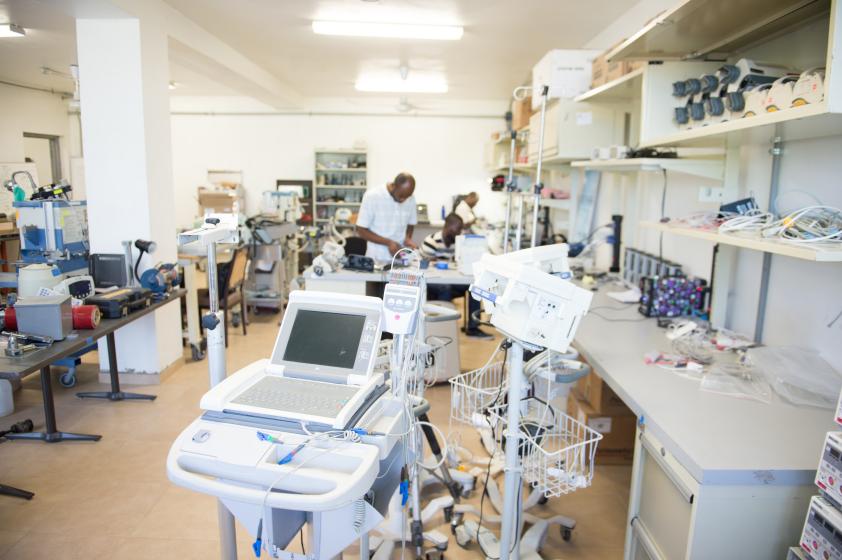“We value making patients feel welcome.”
Your donation will help Nurse Laguerre provide the highest-quality care to every patient in need.


HEI/SBH’s Biomedical Engineering team has grown thanks to the Reparation Pou Amelyore Ekipman Medikal (REPARE) training program. A coalition of organizations including USAID, the W.K. Kellogg Foundation and the GE Foundation have collaborated to provide financial, in-kind, and technical support for three Haitian engineers studying with the HEI/SBH’s Director of Biomedical Engineering, Tom Monaghan. The two newest recruits are Davidson St. Luc and Maradonna Pierre who began training in December 2016.

The fully furnished Biomedical Equipment shop at SBH, January 2017.
“Yes” says Maradonna “that first day we spent organizing and understanding the workshop. Tom introduced us to all the machines and all the tools we will be learning about and working with. We realized how much there would be to learn that first day” Davidson remembers “we sat down with Tom and he explained that we not only would learn how to fix these machines but that to be good at our job we would need to know clinical aspects, patient safety, and the importance of being accurate.”
Davidson’s first week reminded him why he wanted to work at SBH. “I visited the NICU right after starting and I started to cry. I heard about the program before truly understanding what that meant. I visited my mom and explained what I knew to her—she said ‘Yes! That is where you come from. After you were born you were in an incubator! That is directly related to Biomed.’ After that, I knew that I wanted this job. Since I am alive, because of that incubator, I feel I need to be helpful so maybe those kids can do the same thing as me.”
Since I am alive because of that incubator, I feel I need to be helpful so maybe these kids can do to the same thing as me.
Davidson St. Luc, REPARE trainee
Davidson and Maradonna both have electrical engineering backgrounds after attending University in Port-au-Prince. “Finding jobs as an electrical engineer in Haiti is hard, very hard,” Maradonna recalls. “I found many other jobs before SBH. I was a customs broker in Port-au-Prince, then a teacher of Mathematics, and most recently I worked for Zanmi Lasante in the finance library in Mirebalais. While there, I heard about the Biomedical Technician training and realized this was the opportunity to seize my chance.”
Davidson remarks that he felt the same way, “We understand that there is a big load on our back. It compels us to work night and day. Sometimes we are eating and we think about how these machines behave. We talk over lunch: do you remember that monitor? Seeing the equipment is not enough. We must constantly ask questions.”
“One time while I was away,” Tom interjected, “Dr. Bernard came to these guys with an emergency. The fetal monitor had broken and they figured everything out on their own. I trust them completely. But most importantly, I trust them to know when to ask questions.”
Maradonna proudly added, “We are preparing for the International Biomedical Exam—we are on our way to becoming the best Biomed Technicians in Haiti! Once you pass, it means that we are as qualified as anyone else in the world.”
Your donation will help Nurse Laguerre provide the highest-quality care to every patient in need.
